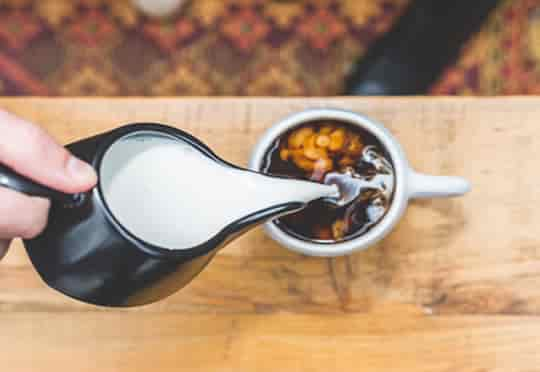Genetic evidence reveals the effect drinking milk has on cardiovascular disease and type 2 diabetes.
A high intake of milk won’t increase cholesterol levels, according to a large study of 2 million people.
In fact, those who drank milk every day had lower levels of bad (LDL) cholesterol than non-milk drinkers.
Moreover, higher intakes of milk were associated with a 14 percent reduced risk of coronary heart disease and an 11 percent reduced risk of type 2 diabetes.
Increased consumption of high-fat dairy, due to their saturated fat content, may have negative effects on cardiovascular health.
Saturated fats have been associated with high blood cholesterol and cardiovascular disease (CVDs) risk.
However, several studies have found that consumption of milk and low-fat dairy products lead to lower cholesterol levels and lower risk of CVDs.
This study examined the effect of milk intake on cardio-metabolic risk (risk factors for developing cardiovascular diseases and diabetes) using a genetic approach by looking at the lactase gene variant.
Lactase is a digestive enzyme which breaks down lactose, a sugar found in milk and milk products.
The enzyme is encoded by the lactase (LCT) gene.
The team found that people who drink higher amounts of milk have the genetic variation that digests lactose.
Professor Vimal Karani, the study’s lead author, said:
“We found that among participants with a genetic variation that we associated with higher milk intake, they had higher BMI, body fat, but importantly had lower levels of good and bad cholesterol.
We also found that those with the genetic variation had a significantly lower risk of coronary heart disease.
All of this suggests that reducing the intake of milk might not be necessary for preventing cardiovascular diseases.”
The reasons that high milk intake can lower cholesterol levels might be related to:
- Calcium and lactose in milk influencing fat metabolism.
- Compared to other dairy foods, milk is low in fat but people with lactose intolerance, to get their calcium intakes, tend to eat high fat dairy products which contain higher amounts of cholesterol.
- Calcium intake from foods such as milk enhances bile acid removal and so causes hepatic cholesterol to generate bile acids, consequently this process leads to a reduction of cholesterol levels.
- Gut microbial fermentation of indigestible carbohydrates such as lactose can affect cholesterol production causing cholesterol levels to drop.
Professor Vimal Karanis aid:
“The study certainly shows that milk consumption is not a significant issue for cardiovascular disease risk even though there was a small rise in BMI and body fat among milk drinkers.
What we do note in the study is that it remains unclear whether it is the fat content in dairy products that is contributing to the lower cholesterol levels or it is due to an unknown ‘milk factor’.”
The study was published in the International Journal of Obesity (Vimaleswaran et al., 2021).

